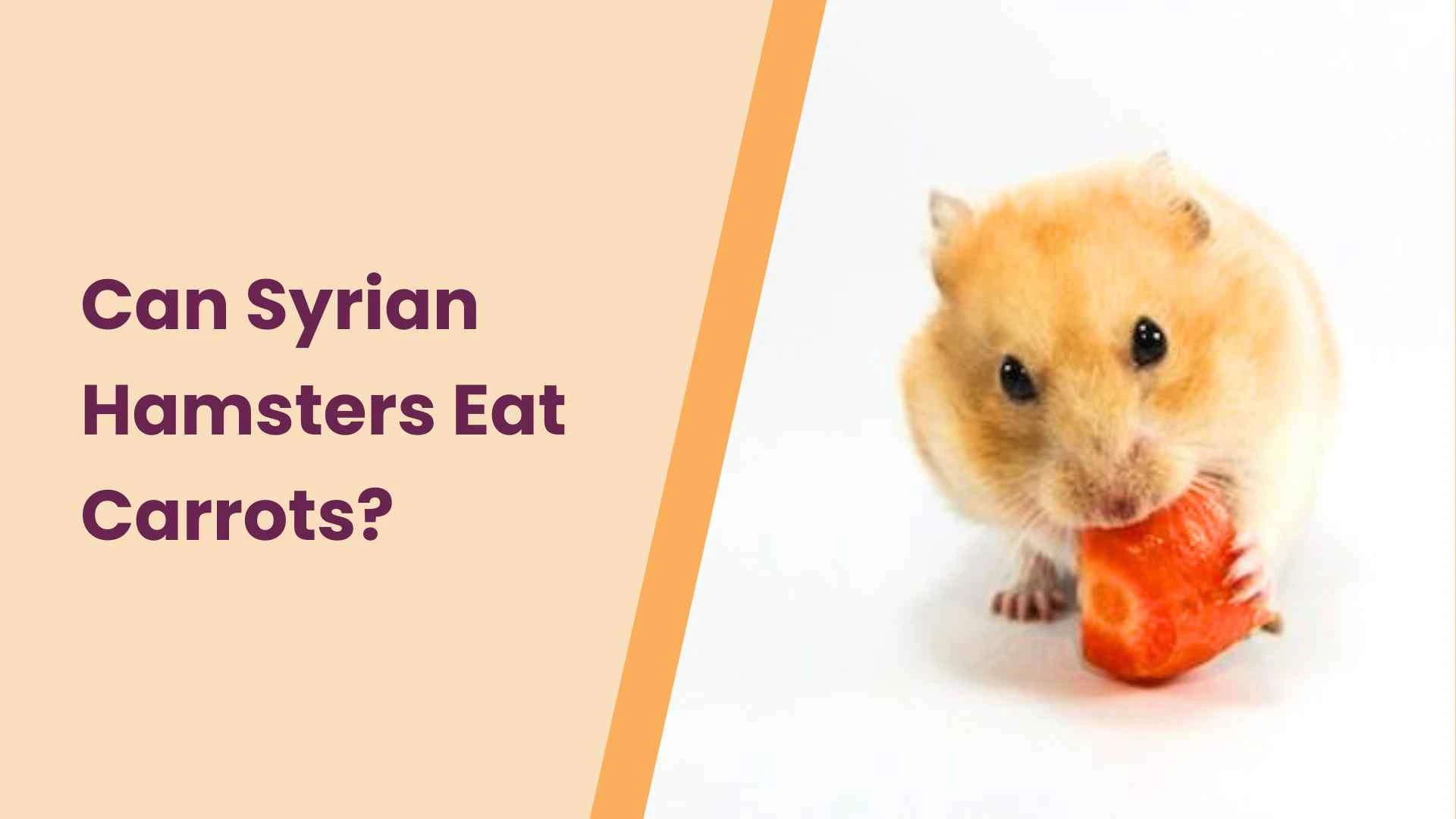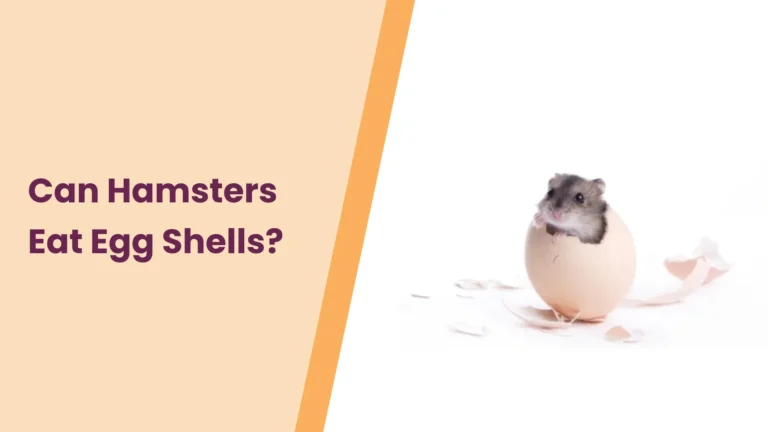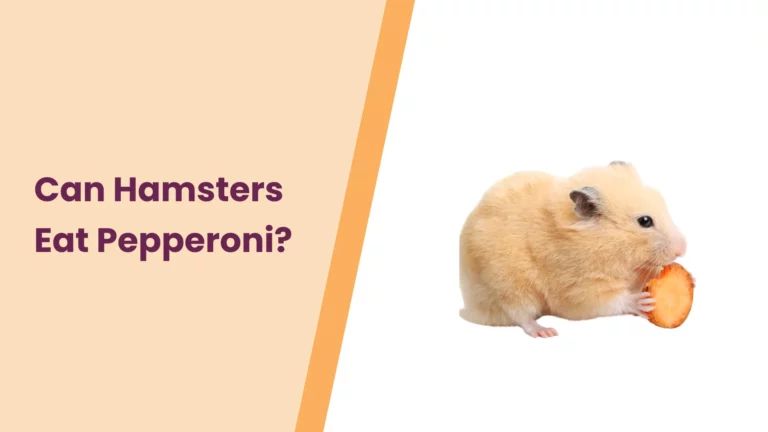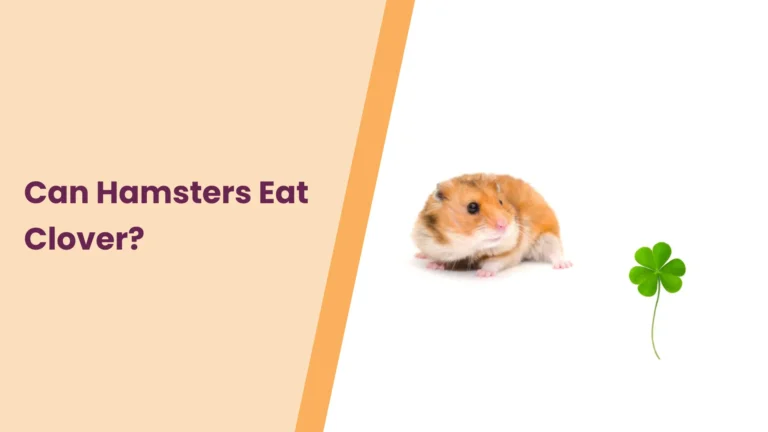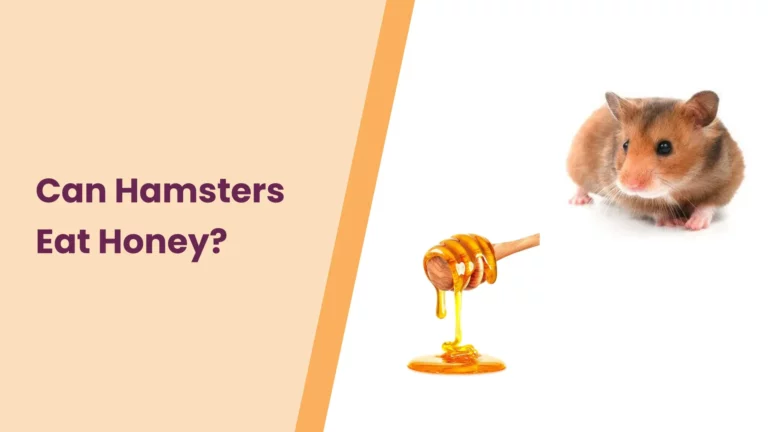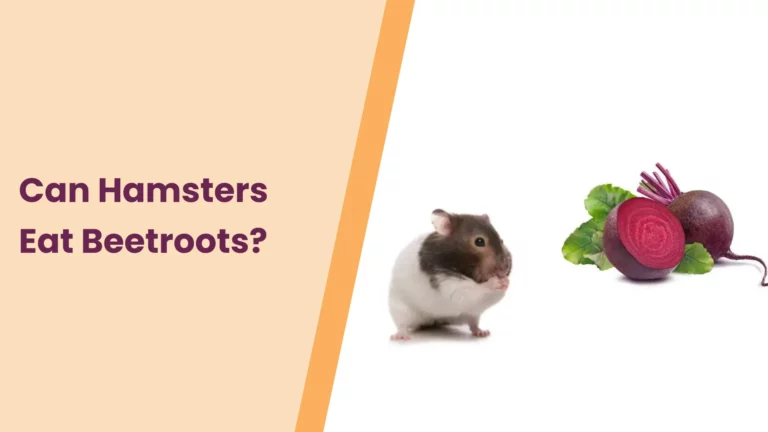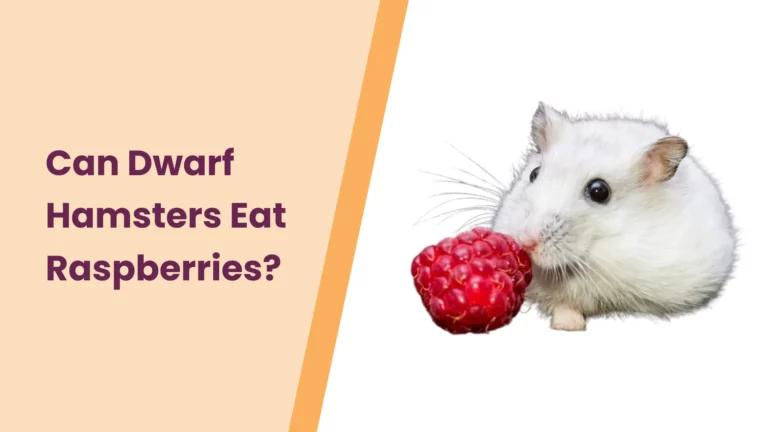Can Syrian Hamsters Eat Carrots? – All You Need To Know
Hamsters, those pint-sized bundles of fur and endless energy, have captured the hearts of pet enthusiasts worldwide. As responsible hamster owners, we’ve all been there – standing in the produce aisle, pondering whether those vibrant orange carrots would make a wholesome addition to our beloved Syrian hamster’s diet. After all, a well-balanced diet is the cornerstone of a happy and healthy hamster life. But can Syrian hamsters safely munch on these crunchy delights? This is a common query that often perplexes pet parents.
In this comprehensive guide, we’ll explore the world of hamster nutrition and delve into the specifics of whether carrots are a safe choice. Let’s ensure our furry friends enjoy a diet that keeps them thriving with vitality!
Can Syrian Hamsters Eat Carrots?
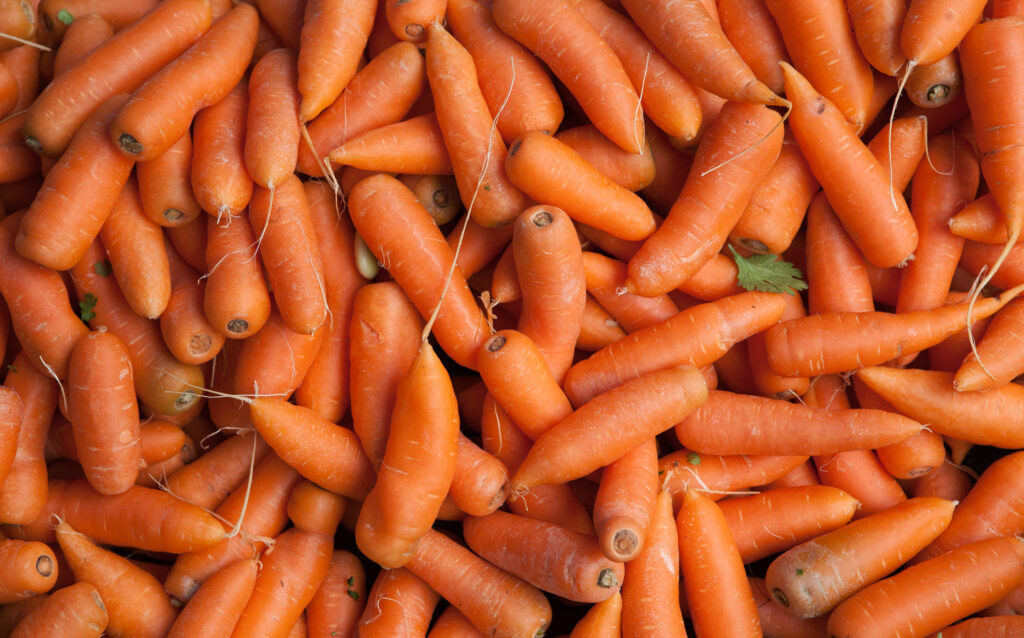
Carrots, with their vivid orange hue and satisfying crunch, are a staple in many human diets. However, when it comes to feeding these root vegetables to our Syrian hamster companions, it’s essential to proceed with care and knowledge.
Are Carrots Safe for Syrian Hamsters?
In general, carrots are safe for Syrian hamsters when offered in moderation. These tiny creatures can nibble on carrots as part of their diverse diet. Carrots contain essential nutrients like vitamin A, fiber, and antioxidants, which can contribute positively to their well-being. These nutrients can support hamsters’ immune systems, promote healthy fur, and even contribute to good eyesight.
The Importance of Portion Control
While carrots have nutritional benefits, it’s crucial to exercise restraint in portion sizes. Hamsters are small, and their stomachs are not built to handle large quantities of any food, including carrots. Feeding too many carrots can lead to digestive issues and potential weight problems. Remember, moderation is the key to keeping your hamster healthy and happy.
Potential Risks
Despite being a nutritious treat, there are potential risks associated with feeding carrots to hamsters. The high sugar content in carrots can be a concern if given excessively. Hamsters are prone to diabetes, and a diet rich in sugary treats, even from natural sources like carrots, can exacerbate this condition. Always monitor your hamster’s reaction to carrots and be cautious if you notice any adverse effects, such as diarrhea or changes in behavior.
In addition to sugar content, the size and hardness of carrots can pose a choking hazard. To minimize this risk, cut carrots into small, bite-sized pieces, making them easier for your hamster to nibble on safely.
Remember that every hamster is unique, and their tolerance to certain foods may vary. It’s essential to observe your furry friend’s response to carrots and adjust their diet accordingly.
In the end, while carrots can be a nutritious addition to your Syrian hamster’s diet, it’s crucial to provide a balanced and varied menu. Carrots should complement their primary food, which typically includes high-quality hamster pellets and fresh water. By offering carrots in moderation and being attentive to your hamster’s well-being, you can ensure they enjoy the occasional carrot treat without compromising their health.
Carrots and Hamsters – The Nutritional Aspect
When it comes to considering carrots as part of your Syrian hamster’s diet, understanding the nutritional profile of these vibrant vegetables is key. Carrots are packed with vitamins, minerals, and other nutrients that can provide valuable benefits for your furry friend.

Vitamins and Minerals in Carrots
Carrots are renowned for their high vitamin A content, which plays a crucial role in maintaining healthy eyesight. This vitamin is especially important for hamsters, as they rely heavily on their sense of sight. Additionally, carrots contain vitamin C, an antioxidant that can support the hamster’s immune system, keeping them better equipped to fend off illnesses.
Minerals such as potassium, which helps regulate fluid balance, and dietary fiber, which aids in digestion, are also found in carrots. These nutrients can contribute positively to your hamster’s overall health.
How Carrots Contribute to a Hamster’s Diet
Incorporating carrots into your hamster’s diet can provide a much-needed dose of variety. While high-quality hamster pellets serve as the primary source of nutrition, offering carrots as an occasional treat can make mealtime more interesting for your pet.
Carrots can also help satisfy a hamster’s natural chewing instinct. Their crunchy texture encourages hamsters to gnaw on them, which helps keep their teeth healthy and well-worn. Hamsters’ teeth continuously grow, so offering safe items like carrots to chew on can prevent dental issues.
Potential Benefits of Feeding Carrots in Moderation
Feeding carrots in moderation can offer several benefits to your Syrian hamster. Here are some of the potential advantages:
- Improved Eyesight: The vitamin A in carrots can contribute to maintaining clear and healthy eyesight in hamsters, enhancing their quality of life.
- Enhanced Immunity: Vitamin C and other antioxidants in carrots can boost your hamster’s immune system, making them more resilient against diseases.
- Dental Health: Chewing on carrots helps keep your hamster’s teeth at an appropriate length, preventing dental problems that can arise from overgrown teeth.
- Variety in Diet: Carrots provide variety in taste and texture, making mealtime more enjoyable for your hamster.
However, it’s crucial to remember that carrots should be considered a treat and not a primary source of nutrition. Hamsters require a balanced diet with a variety of foods to meet all their nutritional needs. Too many carrots can lead to weight gain and other health issues due to their sugar content.
In summary, offering carrots to your Syrian hamster in moderation can be a healthy and enjoyable addition to their diet. By understanding the nutritional value of carrots and their potential benefits, you can ensure that your furry friend thrives with a well-rounded and balanced menu.
How to Feed Carrots to Syrian Hamsters
Feeding carrots to your Syrian hamster can be a delightful experience for both you and your furry companion. However, it’s essential to follow some guidelines to ensure their safety and enjoyment.
Preparing and Serving Carrots
- Wash Thoroughly: Before offering carrots to your hamster, it’s crucial to wash them thoroughly to remove any pesticides, dirt, or contaminants. Use fresh, organic carrots whenever possible.
- Cut into Small Pieces: Hamsters have small mouths, so it’s essential to cut carrots into manageable, bite-sized pieces. This prevents choking hazards and makes it easier for them to nibble on.
- Remove Seeds: Check for any seeds in the carrots and remove them. Seeds can pose a choking risk, and it’s best to err on the side of caution.
- Serve Fresh: Hamsters are more likely to enjoy carrots when they’re fresh and crisp. Avoid offering carrots that have gone soft or mushy.
Incorporating Carrots into Their Diet
- Treats, Not Staples: Carrots should be considered treats rather than a staple food. Limit their carrot intake to a few times a week, and be mindful of portion sizes to maintain a balanced diet.
- Variety is Key: Hamsters thrive on a diverse diet. Alongside carrots, offer other fresh vegetables, such as broccoli, cucumber, or spinach, as well as high-quality hamster pellets and fresh water.
- Observe Their Preferences: Not all hamsters have the same tastes. Some may relish carrots, while others might prefer different vegetables. Pay attention to your hamster’s preferences and adjust their diet accordingly.
- Rotate Treats: To keep things interesting and ensure your hamster receives a range of nutrients, rotate treats. Alternate between carrots and other safe vegetables to provide variety.
- Monitor Their Reaction: After introducing carrots into your hamster’s diet, monitor their reaction. If you notice any digestive issues, such as diarrhea, or if they stop eating carrots altogether, consider reducing the amount or frequency of carrot treats.
Remember that every hamster is unique, so it’s essential to tailor their diet to their individual preferences and needs. Offering a well-balanced and varied menu will help ensure your Syrian hamster enjoys a healthy and happy life.
In conclusion, serving carrots to your Syrian hamster can be a joyful part of their dietary experience. By following these guidelines for preparation, serving, and incorporation into their diet, you can provide a safe and nutritious treat that adds diversity and enjoyment to their meals.
Syrian Hamster Diet Basics
Understanding the dietary needs of Syrian hamsters is vital for their overall well-being. These small, charming creatures have distinct dietary requirements that deserve our attention as responsible pet owners.
The Typical Diet of Syrian Hamsters in the Wild
In the wild, Syrian hamsters, also known as Golden Hamsters, primarily feed on a diet of seeds, grains, and various plant matter. Their foraging habits lead them to scavenge for seeds, roots, and even insects, offering them a varied diet rich in natural nutrients.
This diet in the wild is vastly different from what hamsters typically encounter in captivity. In their natural habitat, hamsters have the freedom to select foods that provide essential vitamins, minerals, and fiber, all of which are essential for their health.
The Need for a Balanced Diet in Captivity
In captivity, Syrian hamsters rely on their owners to provide them with the nutrients necessary for their survival and well-being. A balanced diet is crucial to ensure they thrive in our care. A balanced hamster diet should consist of:
- High-Quality Hamster Pellets: These provide a consistent source of essential nutrients and should form the primary part of your hamster’s diet.
- Fresh Vegetables and Fruits: Offer a variety of fresh, safe vegetables and fruits as treats to supplement their diet. Carrots, cucumbers, broccoli, and apples are excellent options.
- Clean Water: Always provide fresh, clean water in a sipper bottle to keep your hamster hydrated.
- Occasional Protein: Syrian hamsters may benefit from occasional protein sources like mealworms, crickets, or boiled eggs.
Mentioning Key Nutrients and Dietary Requirements
Syrian hamsters have specific dietary requirements to stay healthy and happy. Some key nutrients they need include:
- Protein: Hamsters require protein for muscle development and growth. High-quality hamster pellets usually contain sufficient protein levels.
- Fiber: Fiber is crucial for proper digestion and preventing gastrointestinal problems. Fresh vegetables and hay can provide the necessary fiber.
- Vitamins and Minerals: Vitamin A, vitamin D, and calcium are essential for bone and teeth health. Carrots, leafy greens, and exposure to safe natural sunlight (for vitamin D synthesis) can contribute to these needs.
- Hydration: Maintaining proper hydration is crucial for overall health. Ensure they have access to clean, fresh water at all times.
In conclusion, while Syrian hamsters in the wild have a varied diet, their captive counterparts rely on us for balanced nutrition. Providing a diet that mimics their natural dietary requirements with hamster pellets, fresh vegetables, and occasional protein sources is the key to a happy and healthy hamster. Understanding their dietary needs and meeting them ensures your furry friend lives a long and vibrant life in captivity.
Hamster Diet Alternatives
While carrots are a tasty and nutritious option for your Syrian hamster, it’s essential to diversify their diet to ensure they receive a wide range of nutrients. Variety not only keeps mealtime exciting for your furry friend but also helps meet their specific dietary needs.
Suggested Safe Vegetables and Fruits
- Broccoli: Broccoli is rich in vitamin C and fiber, making it an excellent choice to boost your hamster’s immune system and aid digestion.
- Cucumber: Cucumber is hydrating and low in calories, making it a refreshing treat. It also contains vitamins and minerals.
- Leafy Greens: Spinach, kale, and Swiss chard provide essential vitamins and minerals, but serve them in moderation due to their calcium content.
- Apples: Apples are a favorite among hamsters. They contain vitamin C and dietary fiber but should be offered in small, seedless pieces.
- Pears: Pears are another fruit option, providing vitamins and fiber. Ensure you remove any seeds and offer them in small portions.
Suitable Treats for Variety
- Mealworms: Dried mealworms are a protein-rich treat that hamsters often adore. They’re excellent for occasional supplementation.
- Sunflower Seeds: Sunflower seeds are high in healthy fats and protein. Offer them as an occasional treat due to their calorie content.
- Unsweetened Whole Grain Cereals: Cheerios or unsweetened whole grain cereals can provide variety and fiber.
- Dried Herbs: Herbs like parsley, basil, and cilantro can be a flavorful addition to their diet.
- Small Portions of Whole Grains: Tiny portions of cooked pasta or brown rice can be an occasional treat to introduce variety.
The Importance of Variety
Variety is essential in a hamster’s diet for several reasons. First, different foods provide different nutrients, so offering a wide range ensures your hamster gets all the essential vitamins and minerals they need. Second, it keeps their meals interesting, preventing boredom and encouraging them to eat well. Lastly, it mimics their natural foraging behavior in the wild, promoting mental stimulation and physical activity.
Remember that while offering a diverse diet is important, moderation is key. Treats should only make up a small portion of their overall diet to maintain a proper balance.
In conclusion, hamsters benefit from a varied diet that includes a range of safe vegetables, fruits, and treats. By providing a diverse menu, you not only meet their nutritional needs but also keep mealtime exciting and fulfilling for your beloved hamster companion.
Conclusion
In the quest to provide the best care for our furry friends, we’ve explored the intriguing world of Syrian hamster nutrition and the role of carrots in their diet. Let’s recap what we’ve learned.
Carrots, with their rich nutritional profile, can indeed be a delightful addition to your hamster’s menu. Packed with vitamins, minerals, and fiber, these vibrant veggies can support their immune system, maintain clear eyesight, and promote healthy teeth. However, the keyword here is “moderation.” To ensure the well-being of your hamster, offer carrots as a treat rather than a staple food. Portion control is essential, as excessive carrot consumption can lead to health concerns.
But carrots are just the beginning. Syrian hamsters thrive on a balanced diet that includes high-quality pellets, fresh vegetables, fruits, and occasional protein treats. Variety not only meets their specific dietary requirements but also keeps mealtime exciting.
As responsible hamster owners, it’s our duty to prioritize their health and happiness. Regularly monitor your hamster’s reaction to different foods and adjust their diet accordingly. Provide clean water, a safe habitat, and plenty of love and attention.
In the world of hamster care, knowledge is the key to nurturing a thriving, contented companion. So, whether you’re introducing carrots into their diet or exploring other nutritional options, remember that a well-informed approach is the foundation of responsible hamster ownership. Your furry friend will thank you for it with boundless joy and affection.
“We’re thrilled to have shared insights into the world of Syrian hamster nutrition and the role of carrots in their diet. Your thoughts and experiences as fellow hamster enthusiasts are invaluable, and we’d love to hear from you. Have you introduced carrots to your hamster’s menu, or do you have other nutritional tips to share? Please feel free to leave your comments, questions, or stories below. Your engagement not only helps us grow as a community of responsible hamster owners but also provides a platform for others seeking guidance in the wonderful world of hamster care. If you found this information helpful, consider sharing this post with fellow hamster lovers on your favorite social media platforms, so they too can benefit from the knowledge shared here. Together, we can ensure that our furry companions lead happy and healthy lives.” – Hamsterpit.

